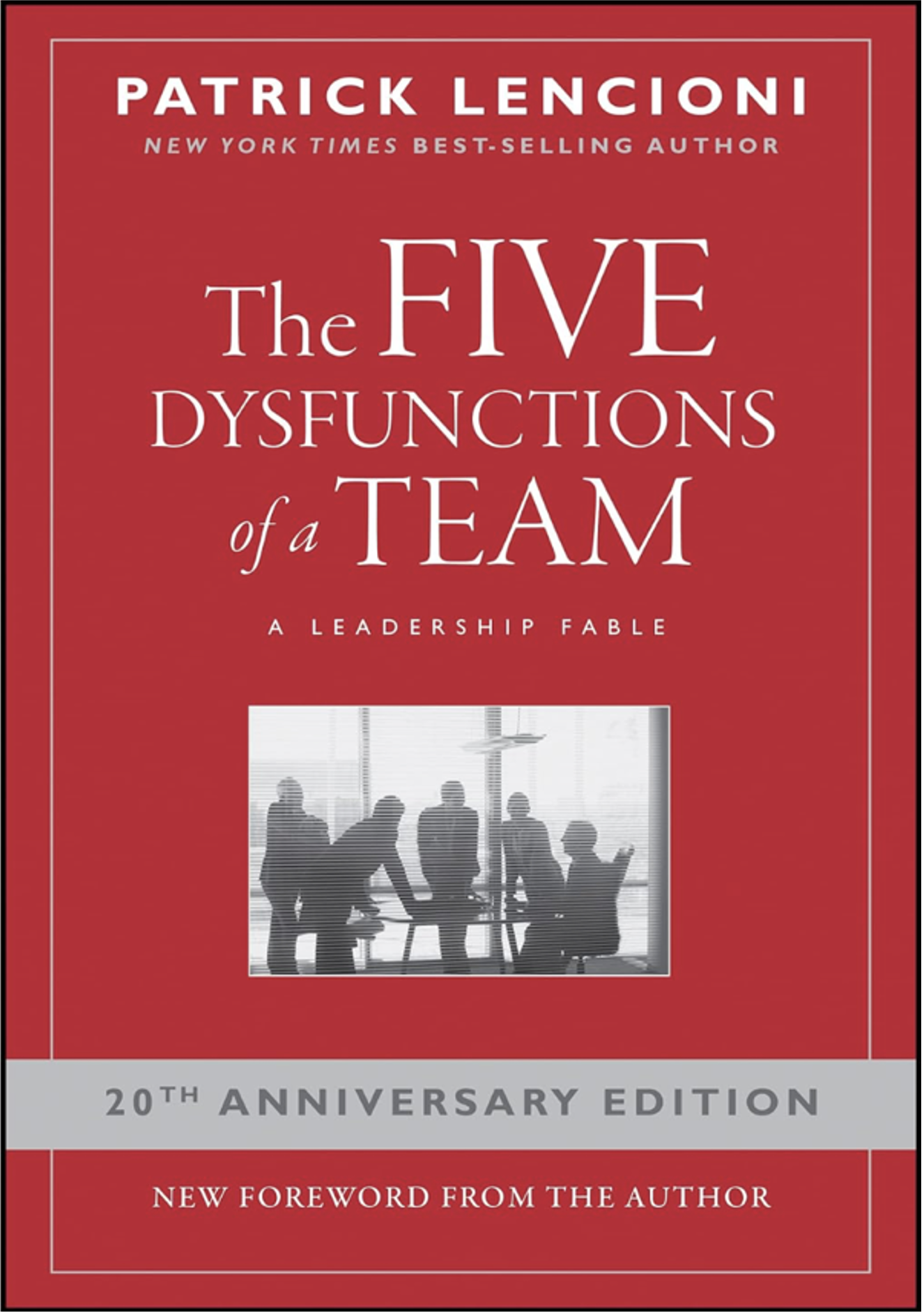Dysfunctional team behaviours can derail our mission objectives and make the workplace miserable. When Commanders and subordinates lock horns over decisions, when colleagues are on different wavelengths, when teams fail to develop trust and sweep conflict under the carpet, when leaders refuse to be accountable, it can make for a traumatic experience for all involved. Commanders need a wide-ranging set of command, leadership, management and training skills, but if alongside all the other skills they develop, they lack healthy team-building, their unit will not be reaching its potential. Poor team leadership is a key trigger of people wanting to leave. On the other hand, teams that cultivate trust, healthy debate, clear and audacious goals, and achieving results are likely to attract and retain quality workers.
One of the best books on teamwork I have discovered is The Five Dysfunctions of TEAM. The author Patrick Lencioni is an American author and consultant focused on team development and organisational health, culture and change. Author of 13 books, this one is one of his first and still most famous. I read it a dozen years ago as a pastor, and am returning to its lessons now as a chaplain and see its lessons are more relevant than ever.
It is easy to read because most of the book is a story of new CEO Kathryn Petersen and her executives overcoming the natural but dangerous pitfalls of teamwork. Lencioni says these can undermine any team:
- Absence of trust (and not being vulnerable). Lencioni comments “No quality or characteristic is more important than trust.”
- Fear of conflict (and artificial harmony when teams need candid debates)
- Lack of commitment (and ambiguity over goals)
- Avoidance of accountability (and low standards)
- Inattention to results (instead focusing on individual status and ego).
Kathryn’s team storms together as they learn to know one another. They roll their eyes at Kathryn’s exercises, play political games, some of them leave and others find new (demoted) roles in the company. But Kathryn teaches them to share what they really think, thrash through their issues, focus on what is most important (after fighting over what that actually is), and get on with their main business.
The discussion of commitment to their main business and pursuing goal and results clarity reminded me to ask what would be our team’s best overarching goal for the year? What would I suggest? What would different team members argue for? What does my Commanding Officer say? (Kathryn said “If everything is important, then nothing is.”) In business they argued about whether to aim to increase revenue overall, increase market share, or aim to simply increase customers – they decided on the latter and aimed for 18. In our different context, what would be our best overarching goal for the year, and how can I in my lane best help facilitate that? These are good questions to ask also in the midst of change as organisations necessarily reset and adjust the goal-posts.
As well as the story modelling a healthy approach to team refocusing, the book explains a collection of tools to overcome the five dysfunctions. And it helpfully offers self-assessment questions that can be accessed as a simple diagnostic paper-based questionnaire or online questionnaire to see how your team is going. It is a helpful diagnostic for team health, but also prompts helpful self-awareness of how each of us as individuals contributes their part into buying into and proactively contributing to the team.
Wherever your team is at, this concise leadership book will help you avoid the trauma of dysfunctional teamwork. Moreover, it is an imagination-grabbing vision of the potential of highly adaptive teams. In Lencioni’s words: “Teamwork remains the one sustainable competitive advantage that has been largely untapped.”
Notes:
Publisher details: Patrick Lencioni, The Five Dysfunctions of TEAM: A Leadership Fable (San Francisco: Jossey-Bass, 2002). If you prefer watching to reading, see the YouTube Five Dysfunctions of a Team – 41 mins or the shorter 2 minute summary.
About the Reviewer
Darren Cronshaw is a Chaplain who has served at Army School of Transport, Puckapunyal, 1st Recruit Training Battalion, Kapooka and Defence Force School of Signals. He is also Professor of Practical and Intercultural Theology with the Australian College of Ministries (Sydney College of Divinity). His hobby is pushing the boundaries of resilience in Ironman triathlons.

